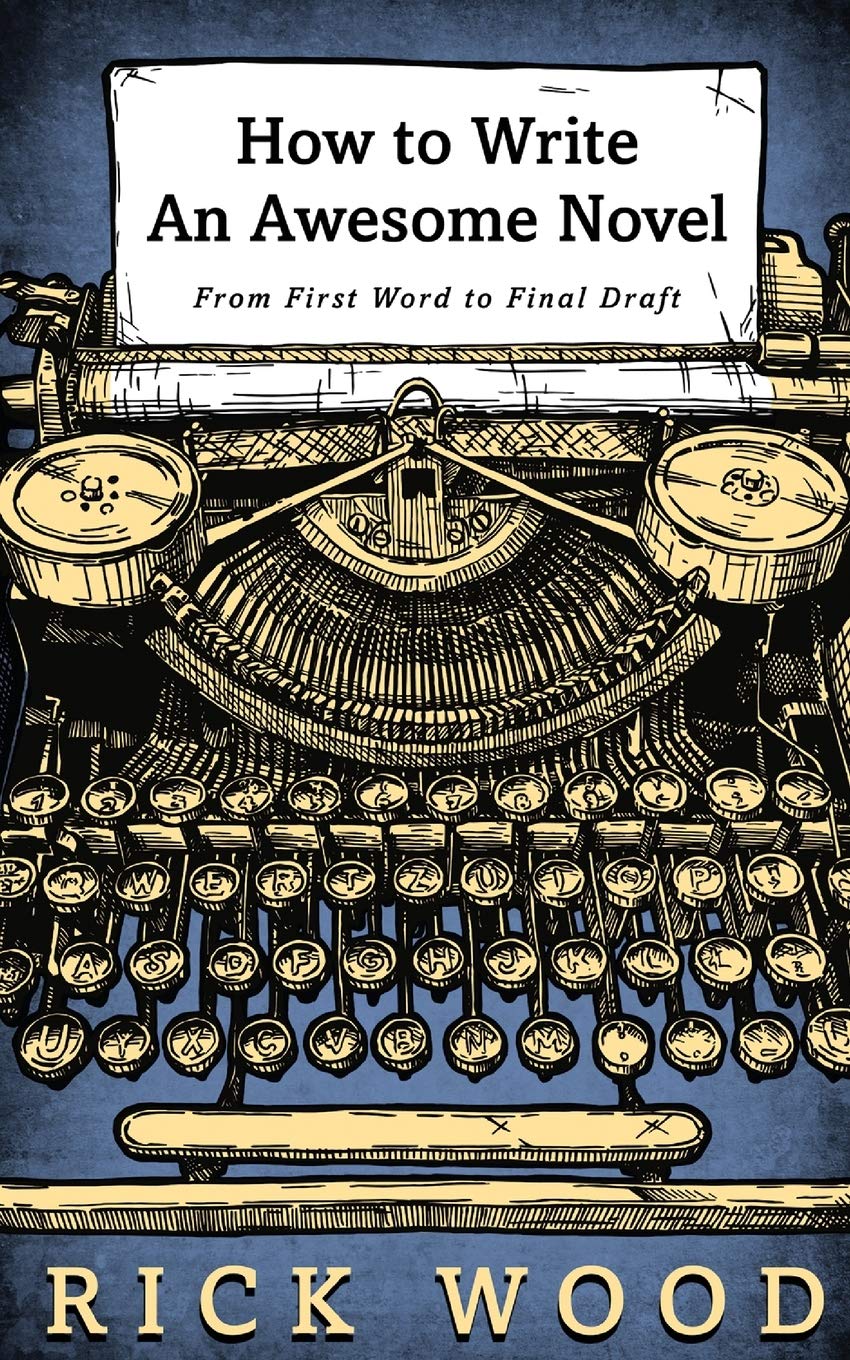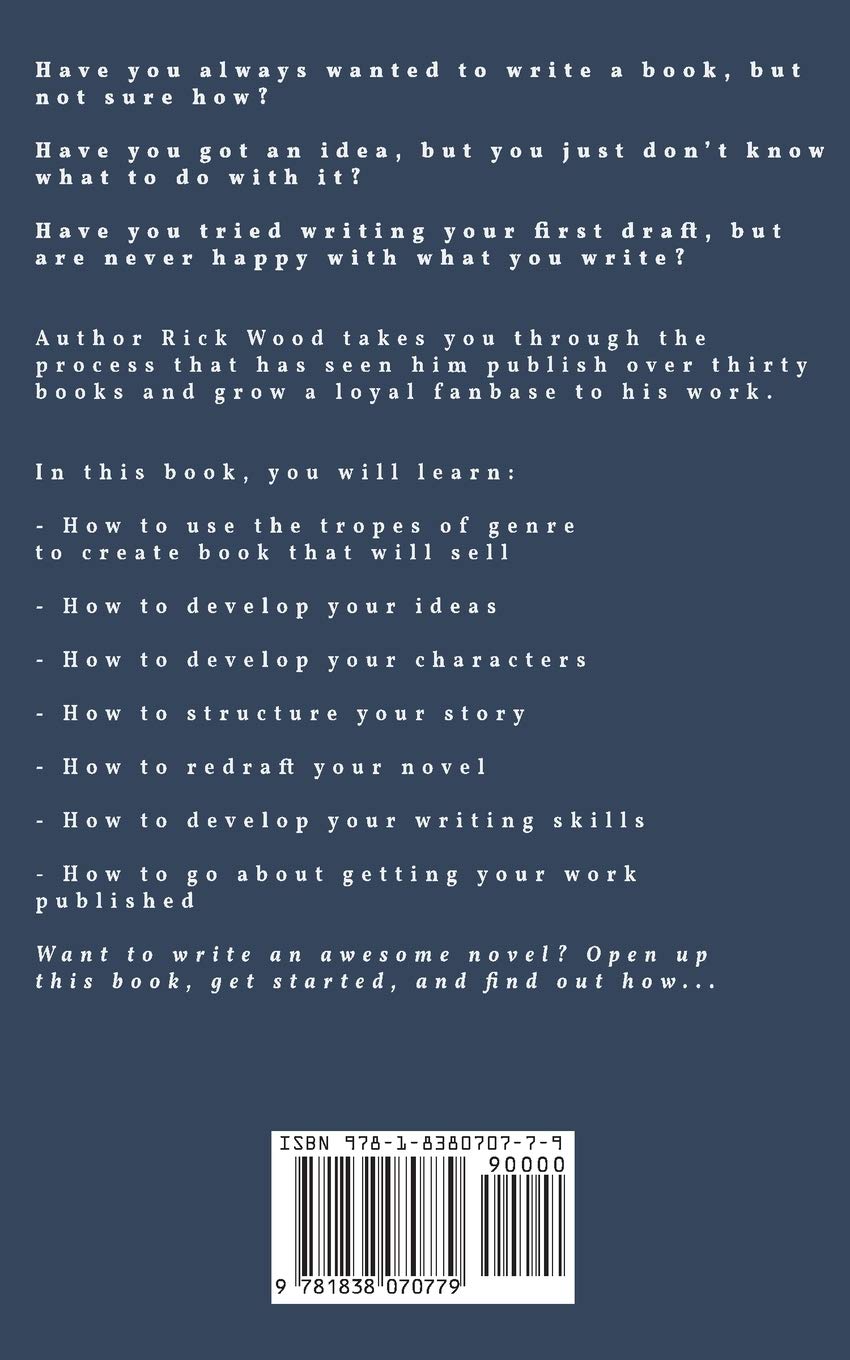


How to Write an Awesome Novel: From First Word to Final Draft
I**H
Straight to the point
This book is well chaptered. Taking you from start to finish with your novel. No arty farty language just straight to the point. A very enlightened, informative and interesting read.
A**N
Useful guide
Short but a very useful guide for those who want to write a novel...
C**E
Concise and filled with useful advice
I read a lot of books on writing because, like most authors, I am always looking to improve. Every book, every story, should better than the last.Rick had condensed years of that learning into this one book. No wordy examples, repetitions or anecdotes to pad it out. If it can be said in 4 paragraphs, he did it, rather than using a 30 page chapter like some others I could mention.If you want to improve your writing, read it slowly, apply the advice and learn.
T**O
Good but nothing new
I found the first couple of chapters about genre's, tropes etc., interesting and made notes. The rest was just obvious and stuff I had read a hundred times before.
L**.
Perfect even for those who think they know it all already!
Professionally written, well presented, knowledgable, printed on good paper, a pleasure to read again and againLove it and would recommend for anyone interested in this topic
L**T
Good tips for writing!
Really useful advice. Easy to dip in and out of depending where you are in your writing.
S**E
Helpful!
I found this to be a really helpful ‘how to’ help book. I really love the creative front cover too!
A**R
Loved it!
Really enjoyed the book from start to finish. Rick Wood gives lots of information about his process which I loved and really good honest advice. Wish I had something like this years ago. Would definitely recommend to aspiring writers.
C**Y
How to Write an Awesome Novel
Great tips for writing stories
D**E
Great primer
Rounded and concise methods for keeping the keyboard on the straight and barrow. I especially appreciated the breakdown of story arc for current novel consumers.
M**
Great book
Good information about all aspects of the process
C**N
Brief. Wise. Effective Craft Book.
When you haven't done something before, you don't know what you don't know. I appreciated Rick Woods' book for its brevity, its cohesivenessness, and its instructions.Clear, concise approaches to each phase of novel writing moved me through what I need to know and do without bogging me down with too many details. He satisfied my need to know and kicked me through the 132-page book so I could continue writing.Part 1 - The Idea - includes his list of "What ifs." He provoked me into writing and generating ideas for future scenes. The same applies to his "And/So What" section. No belaboring his points. No hard, fast rules. Just write the worst first draft you can. Your perfectionism will be one of your worst enemies in this phase, he warns.For new and seasoned writers, the list of classic tropes for each genre and subgenre may be one of the more valuable assets of this book. In reading more than 20 craft books, I've not found such a thorough list.Execution of your ideas matters. "There are plenty of books and movies out there that had great ideas, but the stories stank. It is up to you to craft brilliant characters, not spend ages coming up with an impossible idea you think no one has ever thought of before."Part 2 - Planning - begins with two types of research you'll do as a writer: factual and inspirational. Wisdom and experience vibrate here. The same applies to his chapter on developing characters. "Without decent characters, your story is nothing. Your idea is worthless."Part 3: The Writing Process.Gems: "All first drafts are awful. Your first draft is the hardest part of writing. Your first draft should be written for yourself, and should be written without editing. The first draft is about getting it done. That is all." Wood recommends to set a reasonable word count and stick to it. Never, ever show your first draft to anyone.Possibly my favorite chapter is about Woods' process for redrafting, how he goes from the novel as a whole (how he scrutinizes it, what questions he asks himself) to drafts on each chapter and the order of shaping and editing the work.On first drafts: "If you wish to change something as you go along, don’t. Keep momentum."He covers general writing topics including dialogue, theme, use of rhetoric, choice of POV, and whether to write a series.Part 4 covers editors and gives helpful glimpses of his personal developmental editor notes on his earlier books. The kinds of editors you might need, their fees, how to respond to editors, and resources to find some.Part 5 covers what to do after you've finished writing, including traditional vs. self-publishing and reputable resources like BookBub for marketing.Overall, an excellent craft book on novel writing and one I'd recommend to those asking help in getting started as a fiction writer.
T**R
Just right
This book has a Goldilocks aspect to it. Not too much info, not too little. Just when I thought okay I understand, he was on the next topic. Thats why the 5 stars.
Trustpilot
2 days ago
3 days ago